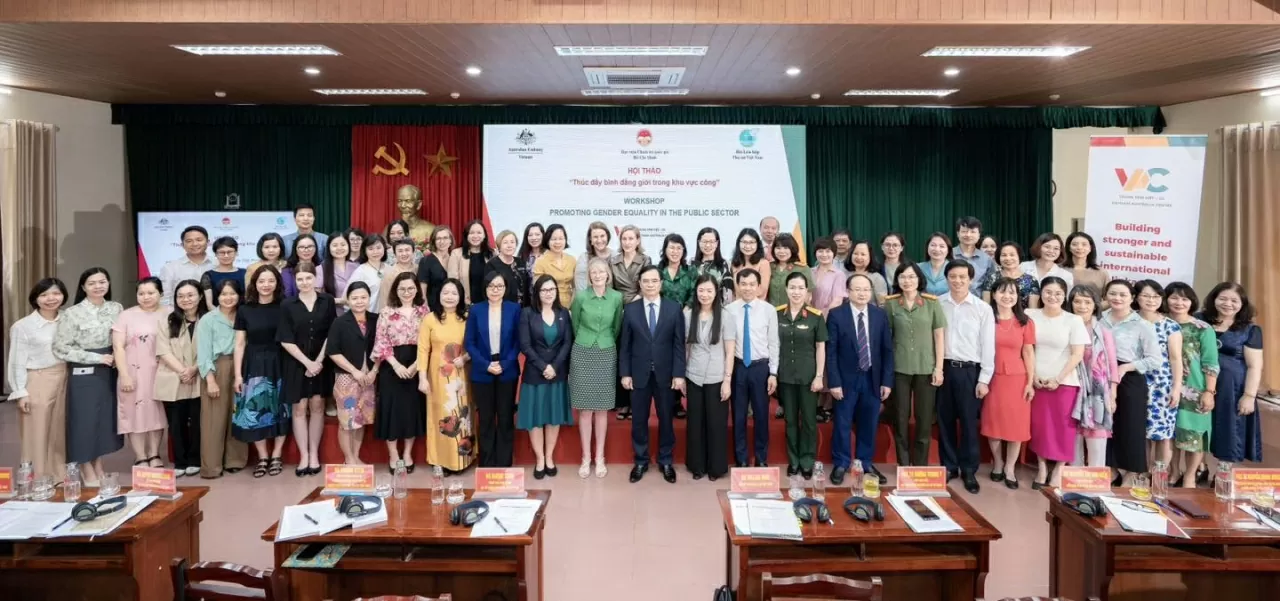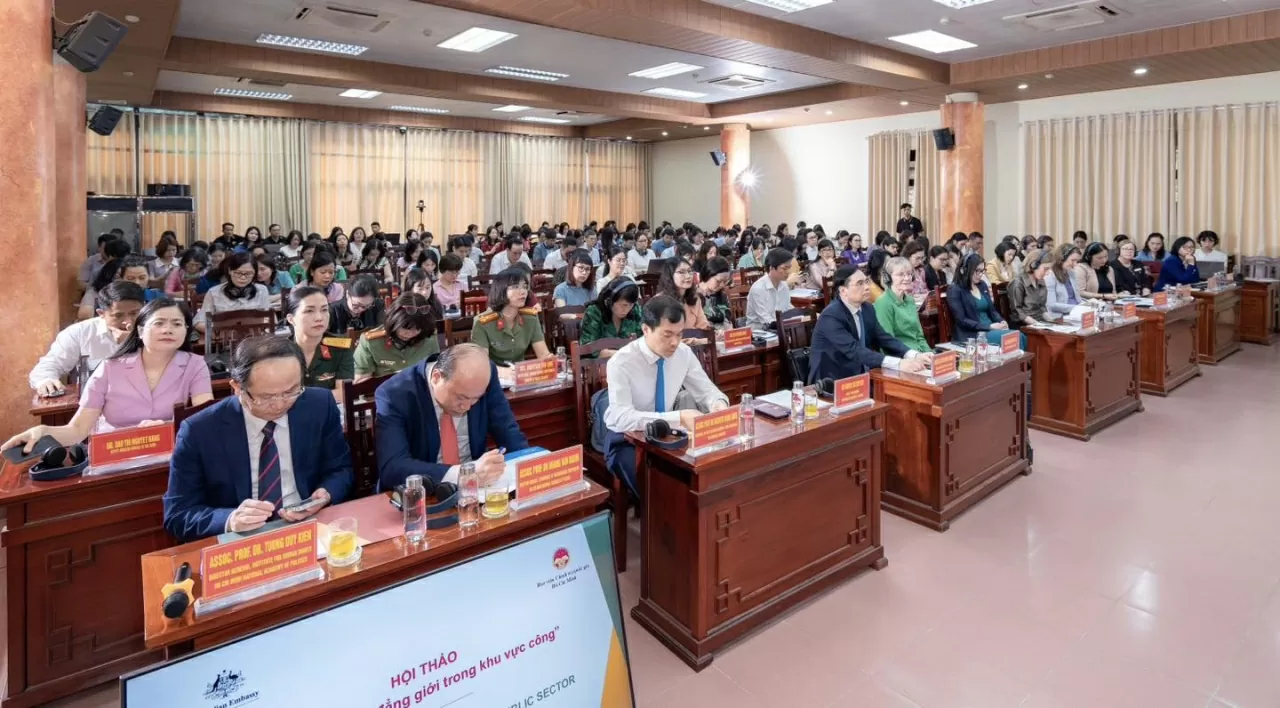
Enhancing transparency and promoting gender equality in the public sector
Latest
 |
| Delegates at the workshop on promoting gender equality in the public sector. (Photo: Australian Embassy in Vietnam) |
In his opening remarks, Assoc. Prof. Dr. Duong Trung Y, Vice President of the Ho Chi Minh National Academy of Politics, emphasized that gender equality is a fundamental principle of social progress and a priority of the Party and State. In the context of accelerated national renewal and international integration, promoting gender equality is not only an urgent requirement but also a key driver of sustainable development, ensuring equal participation of all citizens in political, economic, cultural, and social life.
He noted that the public sector, as a pillar of state governance and public service delivery, must take the lead in advancing gender equality. Building a fair, safe, and gender-bias-free working environment within public institutions reflects the quality, effectiveness, and efficiency of public administration.
Assoc. Prof. Dr. Duong Trung Y reaffirmed the Academy's commitment to working with central and local agencies as well as international partners to promote gender equality through leadership training, theoretical research, and policy consultation. He also stressed the importance of integrating research outcomes and the public sector gender equality index into training programs and studies to achieve substantive progress in this area.
Meanwhile, Vice President of the Vietnam Women’s Union Nguyen Thi Thu Hien emphasized that achieving gender equality in the public sector lays a crucial foundation for broader equality across all areas of society. She affirmed the Union’s commitment to fostering and enhancing the capacity of female officials to enable their advancement into leadership roles within the political system.
 |
| The workshop brings together domestic and international experts, policymakers, and scholars. (Photo: Australian Embassy in Vietnam) |
Australian Ambassador to Vietnam Gillian Bird shared that both Australia and Vietnam place high importance on gender equality, with strong commitments to increasing women’s participation in leadership, empowering women economically, and addressing gender-related challenges.
Ambassador Gillian Bird noted that both countries can only realize their full social and economic potential if leadership selection is based on merit, not gender. Gender balance in leadership helps ensure all voices are heard and policies better reflect the needs of both women and men.
She emphasized that promoting women into higher leadership positions requires leadership commitment, organizational culture change, and active male engagement in driving positive transformation.Increasing the proportion of women in leadership is a challenging task. It requires clear strategies, concrete plans, and sustained efforts, ultimately benefiting individuals, institutions, and society as a whole.
During the workshop, participants discussed achievements and challenges in promoting gender equality in Australia and across Vietnam’s central and local agencies. Alongside shared experiences and opportunities, the event also identified key obstacles to achieving gender equality in general and in the public sector in particular.
The workshop also introduced a range of solutions to advance gender equality in Vietnam's public sector. Notably, the launch of the Gender Equality in the Public Sector Index marks not only a technical tool, but also a clear political and institutional commitment by Vietnam to building an inclusive, equitable, and effective civil service. The index is designed to measure, promote, and ensure the fair participation of women in the political system, public administration, and national governance.
| Developed jointly by the Ho Chi Minh National Academy of Politics and partner institutions, the Gender Equality in the Public Sector Index includes 10 main indicators and 21 sub-indicators, enabling comprehensive measurement of gender equality outcomes across all levels and entities within the political system. This tool helps public sector agencies identify gender gaps and formulate targeted solutions to ensure more effective policy implementation. In its second phase, the index is being piloted at the Ministry of Foreign Affairs, the Ministry of Construction, the Ho Chi Minh National Academy of Politics, and Ho Chi Minh City. This pilot phase is a key step toward evaluating the practicality and effectiveness of the index in the Vietnamese context. |

















